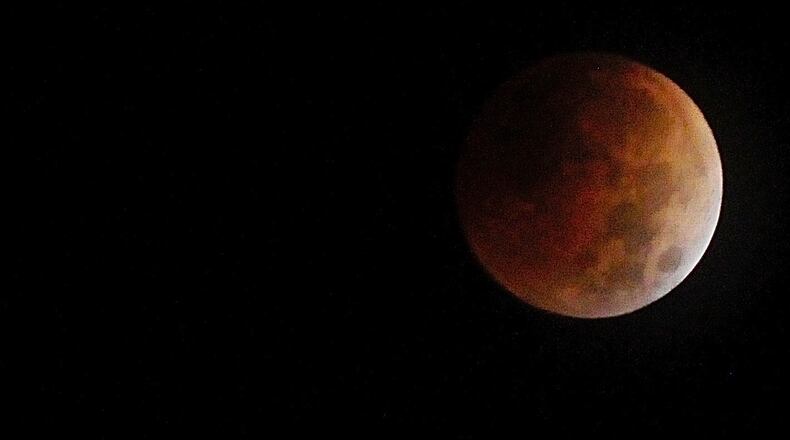Totality lasted nearly 1 1/2 hours — from 5:16 a.m. to 6:41 a.m. EST — as Earth passed directly between the moon and sun.
Known as a blood moon, it appeared a reddish-orange from the light of Earth’s sunsets and sunrises. At the peak of the eclipse, the moon was 242,740 miles (390,653 kilometers) away, according to NASA scientists.
It’s the second total lunar eclipse this year; the first was in May. The next one won’t be until 2025. However, plenty of partial lunar eclipses will be available in the meantime.
___
The Associated Press Health and Science Department receives support from the Howard Hughes Medical Institute’s Department of Science Education. The AP is solely responsible for all content.

